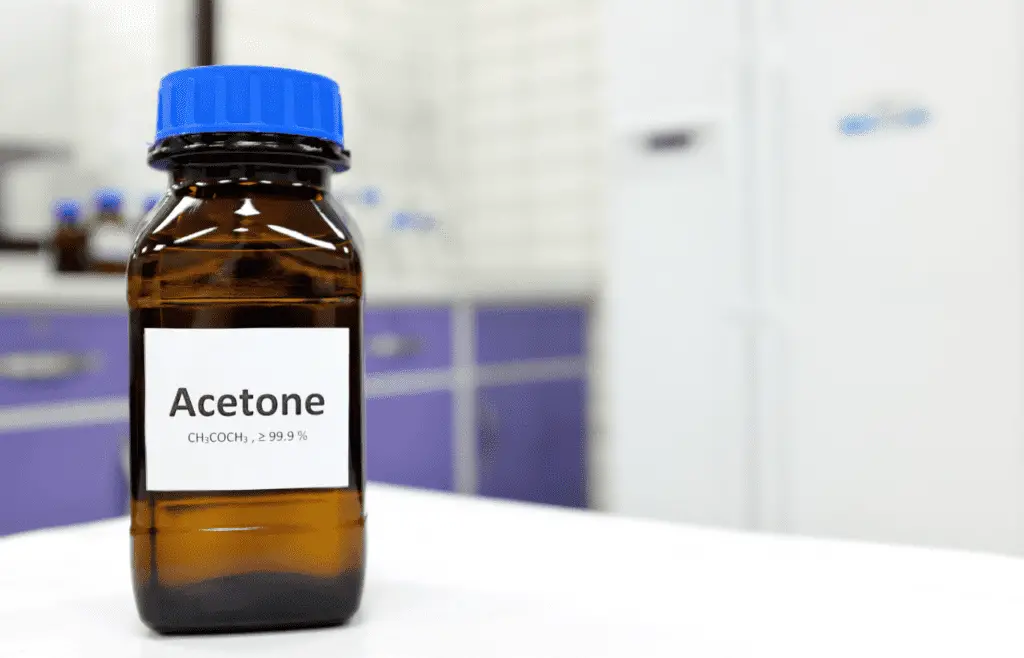Superglue was developed in 1942 by Dr. Harry Coover. In WWII he discovered cyanoacrylates while trying to invent transparent gun sights. In 1951 while working at Kodak’s chemical plant, he realized their gluing potential and created superglue. Can brake fluid remove superglue?
Brake fluid will lose the bond of the superglue over time. It will eat into the superglue and begin to dissolve it. Superglue should not be used on any part that will have contact with brake fluid. If you need to remove superglue, brake fluid may be a good choice and is used by some hobbyists when they need to remove superglue from plastic pieces.
Below we will look at brake fluids’ effect on superglue, what will remove superglue, and what will have no effect on it.
Is Superglue Resistant to Brake Fluid?
Super glue is not resistant to brake fluid. Attempting to use super glue to bond any part that will come in contact with brake fluid will eventually fail.
It may initially appear that the superglue will hold the brake fluid, but over time, it will penetrate the superglue and eat into it. This will cause the superglued part to fail and leak or separate.
Superglue has been used in emergencies when in contact with brake fluid to hold in a short-term situation. If you have no other immediate options, it will initially hold but be sure to remember that the superglue will eventually fail and will need a different long-term solution in the future.
To check the current price and availability of Brake Fluid, click here to view the selection on Amazon.
Will Brake Fluid Dissolve Glue?
Brake fluid might be a good choice if you attempt to remove superglue. We know the brake fluid will eat into superglue and it may be a better option than other fluids that can remove superglue.
If you attempt to remove superglue from plastic, the brake fluid will not be harmful to the plastic whereas other chemicals will damage the plastic and turn it opaque.
Hobbyists have successfully used brake fluid to remove superglue and other types of glue from their projects. If the part is small enough you can soak the whole part in the brake fluid to soften and loosen the superglue bond.
What Glue is Resistant to Brake Fluid?
Most superglues are not resistant to brake fluid. If you need to bond two items that need to be resistant to brake fluid you will need to use epoxy. There is epoxy available that is resistant to all types of automotive fluid including brake fluid.
Loctite Epoxy Welding Bonding Compound is a two-part epoxy made from epoxy resin and a separate hardener. They will need to be mixed together for the epoxy to harden. It can be used as an alternative to welding. It is designed to be used on a variety of materials including various metals and wood. It does not shrink and is resistant to a variety of shop fluids.
J-B Weld manufactures a variety of epoxy that is resistant to brake fluid. J-B Weld products have been used as temporary repairs on a variety of applications that encounter brake fluid including reservoir caps and even brake lines.
While some of these repairs should not be used long-term, J-B Weld may be able to provide an option to repair an application that will come in contact with brake fluid.
What Liquid Can Remove Superglue?

There are a few readily available household products that can remove superglue. Some chemicals that will remove superglue include acetone and rubbing alcohol.
You can also use mineral spirits to help loosen the bond of superglue. If you are attempting to remove superglue from your skin try some lemon juice. You can mix it with salt to create a paste to scrub away the superglue.
The safest and most straightforward is hot soapy water. Allowing superglue to soak in hot soapy water will eventually cause the superglue to break down and become separated.
Other natural methods to remove superglue include vinegar and a mixture of coconut oil and baking soda. Coconut oil and baking soda is a popular option to remove superglue from your skin or fingers if you accidentally get glue on them.
What Dissolves Superglue Fast?
Acetone can quickly dissolve superglue in no time. It will eat away any superglue it contacts easily and quickly. Soaking the superglue in acetone will work the best, but applying acetone and letting it sit can be an effective method also.
Soaking the acetone in a cotton ball and allowing it to sit on the surface is the best method to help it penetrate the superglue.
Acetone does have some drawbacks. It may damage the part you are attempting to remove the superglue from. Acetone can turn clear plastics opaque and even eat through any painted surface it touches.
Acetone may also cause a rash or irritate your skin if you are attempting to remove superglue from your skin. It is toxic and should not be used on any skin that has cuts or abrasions.
Final Thoughts
Brake fluid can penetrate superglue and begin to soften and break it down, but it may take time to accomplish. Hobbyists have successfully used brake fluid to remove superglue from various surfaces and projects in the past. Using brake fluid to remove the superglue can be less abrasive to plastics and other materials that the superglue is bonded to.
Superglues are not resistant to brake fluid but there are epoxies available that have been formulated to be resistant to brake fluid and other automotive fluids. Both Loctite and J-B Weld manufacture epoxies that are resistant to brake fluid and able to bond materials together.
If you are trying to remove superglue, acetone is the fastest and most effective chemical to use. It can break down superglue easily. If you would prefer an organic option, soaking the superglue in soap and hot water will soften the superglue so it can be removed. You could also make a paste from lemon juice and salt to help scrub superglue from your skin.


